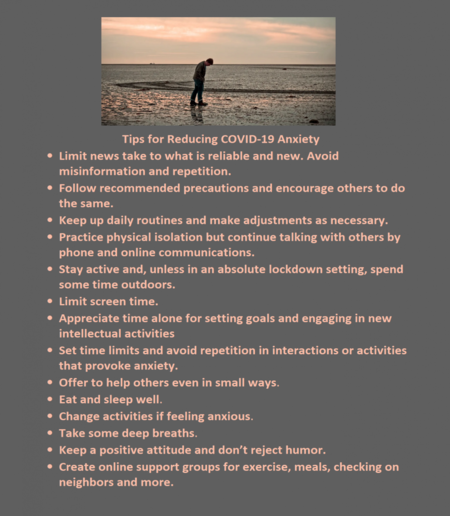Anxious About COVID-19? Yale Medicine
COVID-19 emerged in November, soon spreading throughout China and the world, disrupting home and business routines. Citizens are naturally anxious about a disease that can be fatal for those over age 65 and others with compromised immune systems. People will do best to remain calm as they plan for disruptions that could last weeks or months, explains Yale Medicine infectious disease specialist Joseph Vinetz, MD. Good planning, determining priorities and values, and building resilience can minimize anxiety. “Our brains evolved to monitor our environment for signs of danger,” explains Colleen Moriarty for Yale Medicine. “During an outbreak like this we are flooded with frightening messages about the risks to us, to the ones we care about, and to our daily routines. This can push our anxiety system into ‘overdrive’ making it hard to focus on anything but the disease.” People can also plan for entertainment and activities at home, and Moriarty offers recommendations including gathering reliable information while avoiding misinformation and repetition, remaining in contact with others, continuing exercise and minimizing screen time. – YaleGlobal
Anxious About COVID-19? Yale Medicine
Leading mental health experts at Yale offer advice on how to stay calm and reduce anxiety amid the coronavirus outbreak
Tuesday, March 17, 2020
Read the article from Yale Medicine about reducing COVID-19 anxiety.

(Source: Photo, Bert Kaufmann/Flickr; Advice, Yale Medicine and Anxiety and Depression Association of America)
Yale Medicine
Copyright © 2020 Yale Medicine